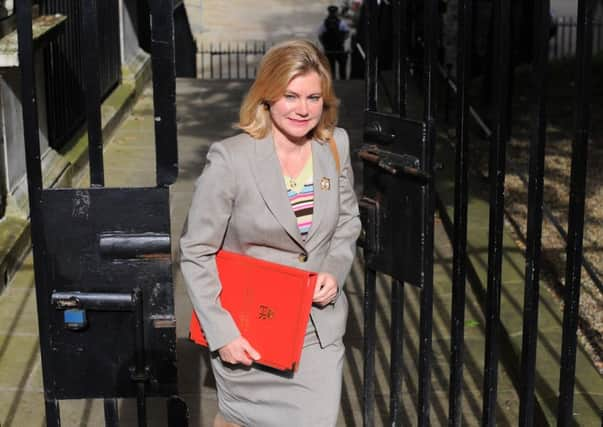Dylan Jardine: Grammar schools back on May's agenda


Her agenda of reintroducing grammar schools, adding to the tiny number already in existence by revoking the ban placed on them under Tony Blair’s government in the late 1990s, has not fallen short of predictable criticism. It does, however, mark a welcome and somewhat unexpected outset to her premiership.
Despite being portrayed as a “non ideological politician”, she is off to a true-blue start as she distinguishes herself from the centrist politics of her predecessor in a move sure to spark approval among the party’s grassroots and combat the “burning injustice” she spoke of in her first speech to the nation.
Advertisement
Hide AdAdvertisement
Hide AdCentral to this debate is equality, with both sides claiming it as the pillar of their argument. It is clearly unfortunate for those who would not make the cut for the grammar school, though that does not mean we should hold back those who would. Children with ability and ambition must be given an education which allows them to fulfil their potential – regardless of background.
The focus ought to shift from misguided, anti-aspirational notions of pseudo-equality which seek to justify the ban by playing with the actual future of those with real potential in order to avoid the upset of others and their supposed impression of inferiority.
Even if this logic does have some unfortunate truth to it, there is no use in dulling the competitive reality of life for those children who are soon to understand it in their own experience, and probably already do so in their own way. Instead equality of opportunity for those bright enough to benefit must be the priority.
Despite David Cameron’s claim in opposition to grammar schools that ‘parents fundamentally don’t want their children divided into sheep and goats at the age of 11’, that is the ironic reality of comprehensive education, too.
Advertisement
Hide AdAdvertisement
Hide AdSurely selection by ability is always preferable to the alternative we currently undergo of doing so by money? Not that Cameron need worry about that, he made sure his daughter secured her place at the elite comprehensive Grey Coat Hospital. One wonders if his opinion would persist had he no option but to send her to one of the bog-standard comprehensives such as he demanded of countless other families deprived of a luxury postcode in his support of the ban.
The historic success of grammar schools as a means of increasing social mobility is difficult to refute; invaluable in aiding significant numbers of children from modest backgrounds into top universities and, consequentially, the professions. When the ban was imposed, their ladder of opportunity was compromised and it has yet to recover. There is no reason that what worked once cannot do so again. The sooner we acknowledge this, the sooner we can rebuild that ladder.
Of all the professions, politics provides a fascinating example of the long-term consequences which resulted from the demise of grammar schools. Meritocracy was beginning to infiltrate our political system with the grammar school set’s appointment to high-office; first kicked-off by Harold Wilson in the 1960s and continued consecutively through every other PM for the next three decades.
Politics is now, once again, the reserve of the moneyed classes. And is it really any coincidence that the public schoolboys have made their comeback just as the legacy of mass grammar school closures and comprehensivisation have begun to catch up with us?
Advertisement
Hide AdAdvertisement
Hide AdIf the brightest children are not given the opportunities they need to complete for the best jobs, then we all lose out as a result. And though grammar schools are certainly no silver bullet to social justice in themselves, the principle of selection by ability is better than the alternative.
We must provide more diversity in the state sector than merely comprehensive education alone, only further entrenching already deep divisions in our society and hindering social mobility, and embrace something new with May’s proposed reform – or old as it happens.
This is an opportunity to reimburse those who have been systematically betrayed by the very people elected to act in their best interests. We can only hope that this will not be the first of May’s U-turns. In the meantime, viva la revolución!
Dylan Jardine is a student at the University of York.